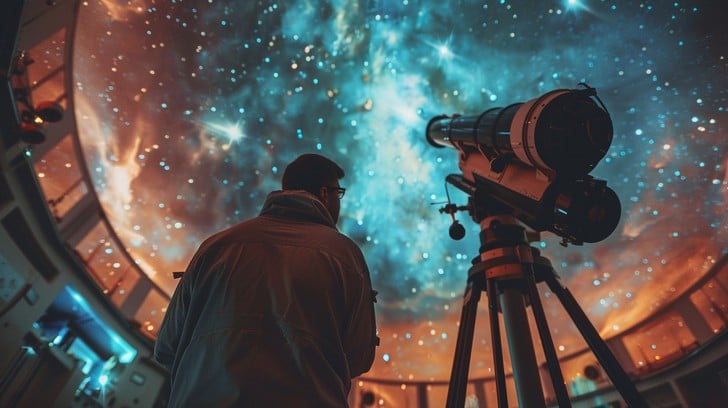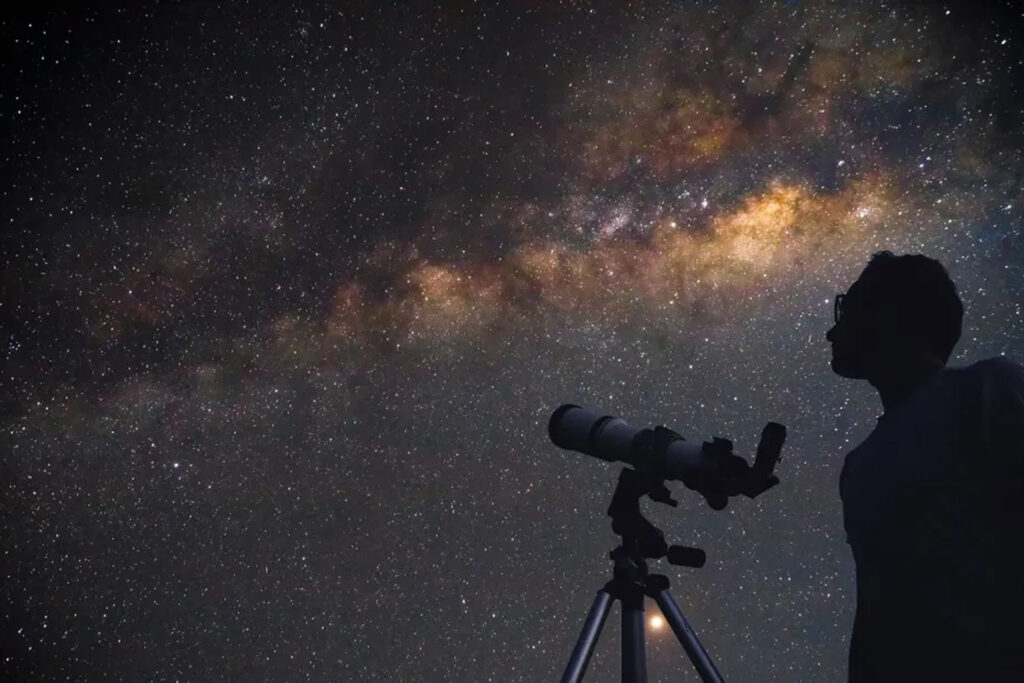Astronomers are the unsung heroes of the universe. With their telescopes, data, and keen minds, they explore the stars, planets, and galaxies that make up the cosmos. These scientists play a crucial role in unraveling the mysteries of space, often challenging our understanding of the universe. From ancient sky-gazers to modern space scientists, the journey of an astronomer has been marked by discovery, innovation, and the unyielding pursuit of knowledge.
What is an Astronomer?
An astronomer is a scientist who studies celestial bodies like stars, planets, comets, and galaxies. They also research phenomena that occur outside Earth’s atmosphere, such as black holes, dark matter, and the expansion of the universe. Their work involves using tools like telescopes, observatories, and space missions to gather data, analyze it, and develop theories to explain the natural phenomena they observe.
Astronomers can specialize in various subfields, including observational astronomy, theoretical astronomy, astrophysics, and cosmology. Their findings contribute to fields such as physics, engineering, and even philosophy, helping us understand the very fabric of reality itself.

The History of Astronomy
Astronomy is one of the oldest sciences, with its origins tracing back to the Babylonians and ancient Egyptians. Early astronomers used primitive tools, like the naked eye, to observe the heavens and predict celestial events. The Greek astronomer Hipparchus, for example, is credited with creating the first known star catalog in 190 BCE.
The scientific revolution in the 16th century changed the way astronomers viewed the universe. Copernicus proposed the heliocentric theory, which placed the Sun at the center of the solar system, challenging the geocentric model of the time. Later, Galileo Galilei used a telescope to observe the night sky and made groundbreaking discoveries about Jupiter’s moons and the phases of Venus.
In the 20th century, astronomers like Edwin Hubble expanded our understanding of the universe’s vastness. Hubble’s observation that galaxies are moving away from us led to the theory of the Big Bang, fundamentally changing our view of the universe’s origin.
The Role of Astronomers Today
Today, astronomers continue to make groundbreaking discoveries using advanced technology. With the help of space telescopes like Hubble and ground-based observatories, astronomers can study distant galaxies and black holes, analyze the chemical composition of stars, and even search for signs of extraterrestrial life.
One of the most exciting developments in astronomy is the search for exoplanets—planets that orbit stars outside our solar system. The discovery of these planets could revolutionize our understanding of the universe, as some may harbor conditions suitable for life.
Astronomers also play a key role in space exploration. The study of celestial bodies, including asteroids and comets, helps space agencies plan future missions and develop technologies for human space travel. The recent discoveries of water on the Moon and Mars have opened new doors for exploration and the potential for human settlement beyond Earth.

The Importance of Astronomers in Modern Society
Astronomy isn’t just about stargazing. The work of astronomers has profound implications for various aspects of modern society. For instance, their research helps improve technology. Innovations in optics and imaging technology, which were initially developed for astronomical purposes, have found applications in fields like medicine and telecommunications.
Astronomy also inspires wonder and curiosity about the universe, contributing to the fields of education and public outreach. By engaging the public in the wonders of the cosmos, astronomers encourage scientific literacy and inspire the next generation of scientists, engineers, and innovators.
Furthermore, astronomers play an important role in the global effort to address pressing issues like climate change and the sustainability of life on Earth. By studying the environments of other planets, they provide valuable insights into how we might preserve our planet’s delicate ecosystem.
Notable Astronomers and Their Contributions
1. Galileo Galilei – The Father of Modern Science
Galileo is perhaps one of the most famous astronomers in history. His use of the telescope revolutionized our understanding of the cosmos, and his observations challenged the long-standing belief that the Earth was the center of the universe. His discoveries of Jupiter’s moons and the phases of Venus helped solidify the heliocentric model of the solar system.
2. Carl Sagan – Champion of Space Exploration
Carl Sagan was a well-known American astronomer who played a pivotal role in promoting space exploration. His work on NASA’s Mariner, Viking, and Voyager missions expanded humanity’s knowledge of the solar system. He was also a popularizer of science, writing books like Cosmos, which brought the wonders of the universe to a global audience.
3. Neil deGrasse Tyson – Modern-Day Science Communicator
Neil deGrasse Tyson is a renowned astrophysicist and science communicator who has brought astronomy into the mainstream. Through his television appearances, books, and social media presence, Tyson has made complex scientific concepts accessible to the general public.
4. Jane Goodall – Bridging Biology and Astronomy
While primarily known for her work in primatology, Jane Goodall has also expressed interest in astronomy. Her perspective on the interconnectedness of all life forms and the environment resonates with the holistic approach that many modern astronomers take toward studying the universe.
The Future of Astronomy
As we continue to explore the cosmos, the role of astronomers becomes even more critical. With new technologies like the James Webb Space Telescope set to launch, astronomers will have unprecedented access to the farthest reaches of the universe.
Moreover, the ongoing development of artificial intelligence (AI) and machine learning is transforming the field of astronomy. AI algorithms can analyze vast amounts of data from telescopes and satellites, uncovering patterns that would be impossible for humans to detect on their own.
Astronomy will also increasingly overlap with other scientific disciplines. For example, advancements in quantum physics and gravitational wave research are expanding our understanding of the universe’s fundamental forces. As we explore the possibility of life on other planets, astronomy will be at the forefront of one of the most profound questions humanity has ever asked: Are we alone?
Conclusion: The Ever-Evolving Role of the Astronomer
The role of the astronomer has evolved dramatically over the centuries. From ancient stargazers to modern-day scientists working with space agencies, astronomers have been at the forefront of some of humanity’s most significant discoveries. Their work has expanded our understanding of the universe, inspired technological innovations, and fostered a sense of wonder about the cosmos.
In the coming decades, the contributions of astronomers will continue to shape our understanding of the universe, and they will remain essential to answering some of the most profound questions in science. As we embark on new space missions, study distant galaxies, and search for life beyond Earth, the astronomer will continue to guide us through the stars.
External Resource:
For Other Resources:
-
“Read more about James Gunn: The Visionary Behind Superman’s 2025 Reboot“
-
“Explore Azealia Banks and Conor McGregor – A Saga of Controversies“


